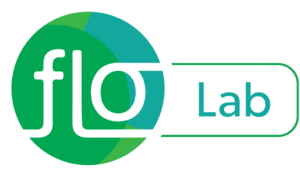Researchers in the social sciences are often required to explore and explain their positionality (Gary & Homes, 2020). A positionality statement is an opportunity for the researcher to acknowledge where they approach the research, what biases they have, and how their worldview is formed. This same practice should be extended to facilitators. For facilitators, developing a positionality statement is a critical self-reflective practice that shows how biases, histories, and intersectionality influence teaching practices. Join us early next year for our FLO Lab on positionality statements. Over two sessions we will 
- Discuss what a positionality statement means for your work in teaching and learning.
- Gain a deeper understanding of your own personal, place-based, and social identities and how these layers impact your teaching and learning practices.
- Practice developing and sharing positionality statements as a facilitator in the digital transformation era.
The first part of the workshop will offer an introduction to positionality statements in teaching and learning in a digital realm. The second part will be an invitation to engage in this practice through the arts. Both sessions will involve lectures and activities for you to engage in ongoing discussions and work to create your own positionality statements to enhance your facilitating skills.
Holmes, A. G. D. (2020). Researcher positionality — A consideration of its influence and place in qualitative research — A new researcher guide. Shanlax International Journal of Education, 8(4), 1–10.
PART 1: Introduction to Positionality Statements (January 11, 2023, 10:00–11:30 a.m.)
PART 2: An Arts-Based Approach to Positionality Statements (February 15, 2023, 10:00–11:30 a.m.)
Learning Outcomes:
By the end of this FLO Lab series, you will be able to
- Understand the meaning of positionality and why it is an important practice for both facilitators and learners to engage in.
- Identify some techniques for robustly engaging in this reflective practice.
- Create a positionality statement or art piece that reflects your worldview and intersectionality.
Facilitators:
Gwen Nguyen (she/her) is currently a learning and teaching advisor at BCcampus. Before she joined BCcampus, Gwen worked as a learning experience designer at the University of Victoria, supporting educators with developing and delivering courses in all modes—face-to-face, hybrid, and online. She has also worked as a university lecturer and researcher at the University of Victoria and Kanazawa Institute of Technology in Japan. Gwen holds a PhD in education studies and an MA in applied linguistics. Her research interests include poetry inquiry as a reflective practice in education, digital pedagogies in teaching a second language, and participatory action research. Gwen has experience with positionality as an instructor and researcher on a regular basis.
Britt Dzioba (she/her) works as the learning and teaching coordinator at BCcampus. Outside work, Britt is completing her master of education at the University of British Columbia. Her research focuses on digital literacy education in community-based programs. As a researcher working with community partners, Britt has invested a lot of time into thinking about her positionality and incorporating positionality into her academic and professional work.
This Lab has a non-refundable registration fee of $25.
Registration is now closed.
This event may be recorded and shared only with registrants.
